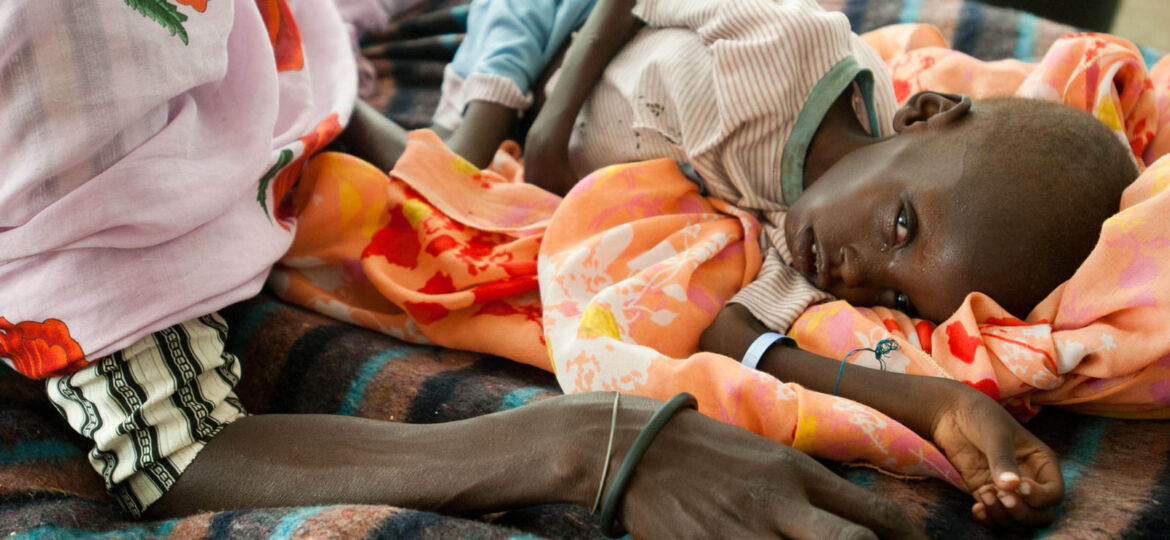
WHY THIS MATTERS IN BRIEF
Hundreds of millions of people go hungry every night, and after a succesful pilot the UN thinks that blockchain could help them solve world hunger.
Earlier this week United Nations (UN) World Food Programme (WFP) announced that 10,000 individuals had taken advantage of its trial to deliver food to Syrian refugees in Jordan using the Ethereum blockchain. The WFP’s platform, which was created by Parity Technologies, a start up lead by Gavin Wood, who was also a co-founder of Ethereum, and big data firm Datarella.
The scheme worked by letting Syrian refugees collect food paid for by the WFP from participating markets in the refugee camp in Jordan. The individuals had their eyes scanned to confirm they were one of the more than half a million refugees cleared to receive aid, and once they passed they were given their food.
Needless to say with the project already looking like a stunning success it could one day be a model for feeding refugees worldwide . Five million people have fled Syria alone, and many now live in poverty in nearby Jordan which is trying to deal with a major refugee crisis. In 2016 alone, the UN estimated it’s now home to over 650,000 Syrian refugees, two million Palestinian refugees, and an ever increasing number of asylum seekers who are fleeing conflicts in Yemen, Somalia, and Iraq.
One of the great benefits of using Blockchain, which is also being trialled to wipe out child poverty, is the fact that it could provide help on a much larger scale than ever seen before, and the WFP has an ambitious goal – firstly to expand the scheme to cover 100,000 individuals by August, then secondly to help the entire Jordanian refugee population by 2018, and thirdly eliminate hunger worldwide by 2030 – a project they’re calling “ZeroHunger.”
I think you’ll admit that that’s an ambitious project that deserves a round of applause – whether or not it achieves its goals – and now many experts are starting to think that blockchain could be the technology of choice to help transform the humanitarian and sustainability sectors.
“Using blockchain, we aim to cut payment costs, better protect beneficiary data, control financial risks, and respond more rapidly in the wake of emergencies,” explained Robert Opp, the WFP’s Director of Innovation and Change Management, “using blockchain can be a qualitative leap – not only for WFP, but for the entire humanitarian community.”
I hope you’ll agree it’s a great project, and I wish them all the best – we’ll see how they’re getting along again later in the year.

















Matthew, I know nothing. So I ask is there a comprehensive approach to to dealing with refugees? I mean what happens after everyone has food? What about shelter, jobs, and the training that comes before that? Proponents of “universal income” are deluding themselves if the refugee crisis is not solved. Are we “just throwing money and technology at it”?
It’s great to finally have a tool that can offer transparency in the charity sector. So often corruption and greed syphon proceeds off before it actually reaches those that really need it.
Can’t understand why it’s suddenly down to technology?
Thoroughly barmy.
Just take, yes take, all the surplus food from the developed world, and give it to the other side.
All the millions of tons that we waste, because we’re stupid, greedy, and thick.
Definitive actions need simple solutions – not daft software.
BringHope.info has been pioneer in benefitting from surplus “potential” of Western countries to help approximately 2 million refugees in Iraqi Kurdistan. It is not about only food. But also medicines, medical equipment, clothing, blankets, toys, educational materials, sport materials (footballs football boots and football kits), as well as textiles and fabrics for sewing project. We have reached more than 0.5 million refugees and IDPs with 90 trucks, of value >$75 million, in less than two years. Just today we loaded one truck medicines, Amoxicillin, Ibuprofen, and Diclofenac, from the UK to Kurdistan, which otherwise has been destroyed in the UK.
Great well done to all Bring Hope